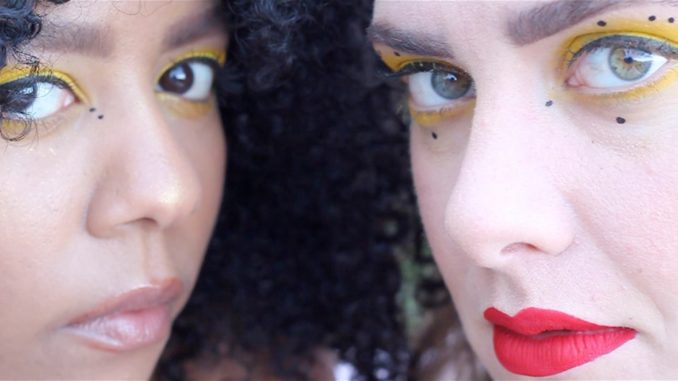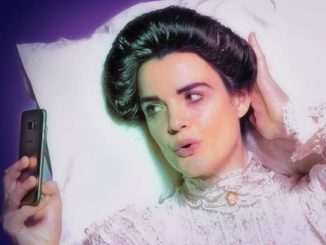
Values Held Hostage
Was it the moral righteousness? The insistence their way was the right and only way? The absurdity of the camembert argument: that they knew how to pronounce the French properly because they were educated?
Over the past week an artefact of New Zealand coloniality went viral: audio from Marcus Lush’s talkback show of two callers proudly defending their right to pronounce Māori place names the way they had been brought up to: “I will never pronounce them the way you think they should be pronounced.” For some it was shocking to hear this perspective voiced so openly and so wilfully. For some this was just the example of the week of everyday racism and supremacy encountered, well, everyday.
Lush’s incredulous response was that this call should go to Te Papa. And that’s the easy dismissal: these views belong to an Aotearoa of yesteryear, we are a different country now. But ransom., the 2019 BATS STAB Commission, warns us of a not-so-distant future where the type of mentality expressed by these callers is very much on the rise. Where the she’ll-eventually-be-right progressive arc of history is just an action-delaying illusion. Following post-Brexit fallout, New Zealand has become a Republic, and the local alt-right is in ascendance, led by MP Katie Wakefield. Promising “to say the things everyone else is too afraid to say,” Wakefield is a dangerously compelling mix of Pauline Hanson meets Lauren Southern by way of Lady Gaga: glamorous, charismatic, and alarmingly electorally appealing. And now, on the eve of the 2024 election, she has been kidnapped.
Created by directors Stella Reid and Neenah Dekkers-Reihana with Robbie Nicol, Finnius Teppet and the cast, ransom. is gutsy not only for running head first towards a toxic political climate, but in creating a promenade show that takes over the entirety of BATS and plunges the audience directly into the action.
In a group of 3 that we remain with throughout the whole show, we are led up the BATS staircase and given a preshow briefing from a crew member. They emphasise that any point we feel unsafe or uncomfortable we can put our hands up, stay stop, and we’ll be retrieved. We are invited to put on sleeping masks, and we sit in darkness, listening to out of context conversations about interns and packages. We are carefully led into a room, and an unidentified voice instructs us to remove our masks. It appears we have gone to sleep and have woken in a living room in a distinctly non-woke 2024. The voice tells us to look at the others in the room – we are family, we have each other’s backs. A breaking newstory plays on a screen. Robbie Nicol’s White Man Behind a Desk persona has transmuted into biased newsreader for Wakefield media, reporting that the kidnapping of Katie Wakefield is threatening to plunge NZ into a civil war. We see archive footage of Katie (played by director Stella Reid) spewing invective against massive human snakes and Pacific leeches (rhetoric directly lifted from the Garners and du Plessis-Allans) – a message, Nicol informs us, that “resonates with everyday kiwis.”
There’s a knock on the door, and we open it to find Rai (Isadora Lao). The delivery has arrived – a box of dildos, perfect for throwing at politicians. She’s a member of a campus activist group Rainbow Warriors, and it appears we are too. We’re taken to a new space to meet Neve (Moana Ete), a lecturer at Wakefield University who is careful to hide her progressive views lest she gets in trouble with the management (in a particularly horrifying vision of the future for this university lecturer, all lectures are now given remotely via VR).
Determined, in part, by the architecture of BATS’ upper levels, the logistical mechanics of the work are very visible in the first half of the show. Unlike the open world of Stella Reid’s directorial work in the What We Do in the Shadows themed Second Unit earlier in the year, where audiences can roam the immersive environment and pick their own path, in our ransom. group of three we are circuited through a tightly timed series of scenes, with the actors resetting for the next group of three hot on our heels (whereas Second Unit resembled a Punchdrunk immersive theatre show, ransom. takes it cue from the You Me Bum Bum Train model). Practically, this means that sometimes we get to see groups before us do what we have just done – as well as get glimpses of what is ahead of us. What we hear when we are ‘sleeping’ before the show we get to see when we are are in the living room. When we are interns for journalist Kupe (Sepelini Mua’au) travelling down the stairs, we are instructed to say “hi” to the fresh group travelling up – an event that had already happened to us on our own way up. As we got deeper into BATS and a more linear sequence of spaces these intersections disappear and the potential thematic resonance that there are people ahead of us on the same journey, and that there are people behind us on the same journey, is dropped.
We don’t have agency to intervene in the narrative trajectory, but the actors open space for us to feed in responses and create some unique improvisational moments – the actors are very willing to play if we are up for it (With Second Unit and now ransom., Wellington-based actors have rapidly up-skilled in participatory theatre). But it’s not always clear what they want from us (what is our role?), and the actors’ repeated questions of “What do we know?” in the early stages of the show don’t really help when essentially all that has been revealed to us is someone unknown has taken Katie Wakefield hostage. There’s a strange transition from being journalist interns coming up with headlines, to finding ourselves in the lush, house-plant filled lair of the warmly comforting fortune teller Fffion (Jean Sergent), who helps us understand the wider cultural landscape of the country in 2024, divided between splintered territories of New Zealand and Aotearoa. It’s best to embrace the dream-like logic of the show rather than trying to build a coherent through line for your own character, with each space offering a fresh ‘Thank God You’re Here’ scenario for us to adapt to. We’re asked to serve competing agendas, and observe characters compromising their own integrity to conform with systems of power.
One of the most compelling exchanges is with a drag artist (Jake Brown), who is debating the appropriateness of performing that night as her parodic alter ego Shady Katie Hatefilled. While she had begun the act as a way to subvert and ridicule Wakefield’s harmful rhetoric, Shady’s career has become symbiotic with the fortunes of her target. Has her celebrated act helped normalise the divisive politician? It would seem there’s a slippery slope from Thomas Sainsbury Paula Bennett impersonations to alt-right adulation. One member of our party suggests that the artist has immunity, with the duty to tell the truth. I’m not so sure. The self-aware sequence slyly opens debate upon Ransom itself. What are the roles and responsibilities of the artist to counter injustice, oppression, and bigotry? How do you call out the rhetoric without further spreading its networked influence? What, for example, will American late-night do after Trump? (Will there ever be a time after Trump?).
And sitting under this is the doubled question we as the audience have been asking ourselves throughout the journey: what is our role?
You see, there’s something I’ve been holding back in this review so far. Something I’ve wanted to avoid. But if I’m to properly talk about my experience of ransom., I need to talk about the subtext that carried through the journey. What happened before the show.
In the BATS foyer ‘departure lounge’ my guest and I were placed with our third fellow traveller, and we made innocuous small talk as we awaited instructions. When my guest answered “Wellington” to the question of where they came from, the fellow audience member was ready with a follow up: “Are you a Kiwi?” Now that’s a question loaded with baggage. But one that I, as a Pākehā, rarely grapple with – and really only self-identify as such when I am overseas. My guest tried to sidestep, but our fellow audience member made their own inference: “Well, not natural born.” And there it was. A conversation between strangers, micro aggressions establishing boundaries and hierarchies of belonging. Face value judgement and a different level of scrutiny between two tauiwi. I wasn’t born here, but this wasn’t questioned (although my Dad’s family have been here for a few generations – and why do I feel the need to clarify this?). My guest and I confirmed afterwards that the unease and discomfort from this interaction stayed with us over the course of the show. I was disturbed that this would happen at BATS, at this show. And I kept debating what I should have done, if there was something I could have said, rather than trying to move the conversation on. Because we were going to have to spend an hour together? Because I didn’t want to ruin their experience? Because I thought they might be horrified if they learnt that we felt uncomfortable? (Because of the horror I would feel if I learnt I had made anyone uncomfortable?) The story of ransom. became the study of our three-way interaction: what was voiced and what was unsaid, the cross purposes, the flawed good intentions, how we negotiated our space together in relation to the ransom. form and story. This all sat presently with the concerns of the show. It was the show.
It is possible to engage with ransom. on an arcade level, working out the various games and advancing to the end level. It’s an assured theatrical engine, taking us into the secret behind the scenes areas of BATS. These are transformed with acute easter egg attention to detail by production designer Rose Kirkup, accentuated by Thomas Lambert (music and sound), Elekis Poblete Teirney (lighting) and Sophie Sargent (costume).
But there are histories and resonances sitting heavily underneath the work if we choose to engage with that too. It’s there in giving all the Pākehā institutions the name of Wakefield, the surname of the journeymen brothers who founded the New Zealand Company, on sold dubiously purchased iwi land, and drove colonisation. It’s there in New Zealand’s free speech debates and the angst around the ‘deplatforming’ of visiting alt-right figures or ex National leaders (not to mention the very selective causes of the free speech coalition). And it’s very much there in ransom. being a post-March 15th work. In response to that event was the determined repudiation: This is not us. And there was also a wearied counter call: This is us. Like we lived in two very different countries.
Where ransom. is most troubling is not its vision of political polarisation in 2024, but its vision of 2019, right now. Dehumanising rhetoric by prominent media personalities. An opposition party wilfully ignoring evidence to dog whistle (again) on beneficiaries and gangs. Government parties that pursue wedge migrant policies and price people out of visas. Teaching history in Aoteraroa schools is a start, but we can’t look to it as a panacea. This is all here now. In the macro in the micro. In consciously trying to override our cultural programming of mispronunciations, or staying in the Pākehā comfort zone. In our everyday interactions and snap assumptions. This is us.
It is all to ransom.’s credit that it can prompt such reflection. In the UK, immersive/participatory theatre has become ubiquitous to the point of cliché. But the scale and challenging economics (ransom. is restricted in how many audience it can get through per night) make it a nascent form here (The Generation of Z and now Second Unit have been some of the higher profile NZ examples). Typically interested in creating grand images, simulacra simulations, or escapist thrill rides (*cough* immersive Wolf of Wall Street *cough*), in the spirit of Playground Collective’s Like There’s No Tomorrow before them, it is exciting to see local artists exploring how the immersive promenade form can be meaningfully used for socially conscious ends. ransom. is helped in that its satire is both razor-sharp intelligent and quite dryly funny (a disastrously timed product launch sequence is a highlight).
For the end reveal ransom. makes a trade off in tension with a change in tense, as we discover in retrospect the full story of what has gone down. Whether they had run out of spaces or run out of ways to extend the mystery, narratively it comes across as a deus ex machina fix to tie up loose ends. But theatrically it is a stunningly designed sequence, like we have found ourselves in the middle of a noir film. We reflect on whose voices we amplify, with the final commentary eloquently speaking for the agenda of the show itself.
The kinks in ransom. are likely to be improved as cast and crew get more experienced cycling through their audience groups. Visionary and aspirational theatre, ransom. challenges us to speak up and work for a better today.
ransom. plays BATS Theatre until 16 November.




Leave a Reply